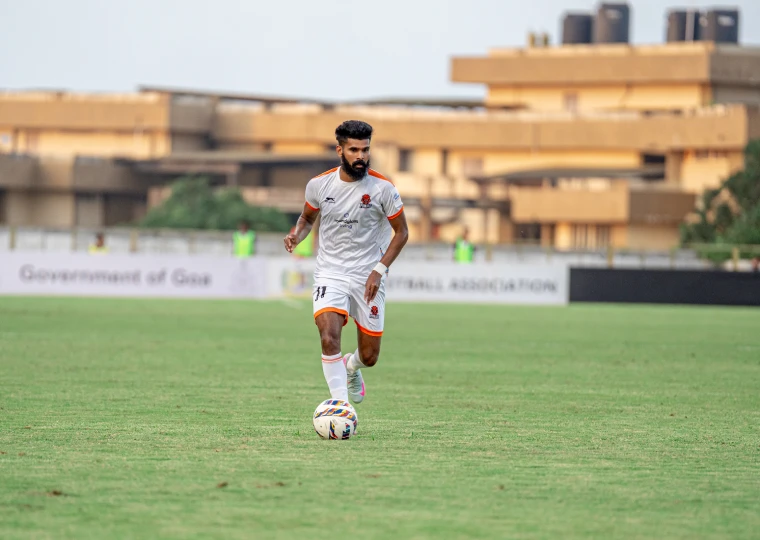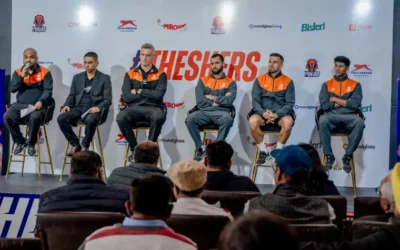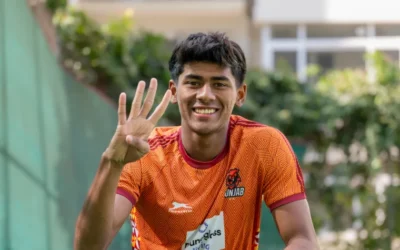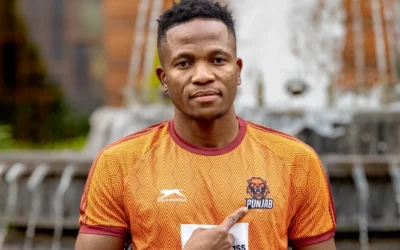
On October 27 in Bambolim, when Princeton Rebello placed the ball into the net in Punjab FC’s 2025 Super Cup opener against Gokulam Kerala, the moment carried far more weight than a regular goal would. It carried the memories of everything that had happened in the year before: the injury, the surgery, the months of rehab, the frustration, and the discipline.
It was a moment that meant far more than the scoreboard would ever show, because it had come from a place of a painful struggle. Ahead of the 2024/25 season, before a single ball was kicked, Princeton’s world had come to a stop.
“Even before the season started last year, he suffered with an ACL injury. He got operated for it,” says Dr. Vinita Thapliyal, the sports nutritionist who is a key member of Punjab FC’s Wellbeing team, and played an impactful role in Princeton’s recovery.
For a player whose rhythm had always been the heartbeat of the midfield in all the teams he played in the past, the sudden stillness was brutal. The ACL, three letters that can haunt even the strongest of footballers, meant a long time spent on the sidelines. But in that darkness, a new kind of fight began.
“Princeton showed resilience. As a team, we worked with the physiotherapists and Strength and Conditioning coach and focussed on his right nutrition and right supplementation. But Princeton played the biggest role in this,” Dr. Thapliyal recalls.
“See, there’s one thing: it depends majorly on the player. If the player himself doesn’t want to come out of that mental zone, it becomes difficult. That wasn’t the case with Princeton.”
That, perhaps, was the turning point; when resilience became a daily decision. His surgery in Mumbai marked the beginning of a long, unglamorous journey.
“After the injury, he got operated in Mumbai. Rehab is the first plan of action and while the physios have the major role in that, we ensured the right nutrition and supplementation for him,” said Dr. Thapliyal.
The Mental Resolve
The physical recovery was led by Punjab FC’s world-class medical staff and physios that included Ioannis Papaioannou (Strength and Conditioning) and Sidak Dhillon (Medical Doctor, First Team). Princeton also worked individually with physios like Lara de Miranda as the senior team travelled throughout the Indian Super League season.
“First few weeks were more focused on educating him on what his rehab would look like over the next few months, and also sitting together and setting realistic goals. In terms of his rehab, he worked on getting his base strength and range at the knee back. He also worked on a full body program to keep his overall strength and fitness up without overloading the knee,” says de Miranda.
Recovery, though, rarely moves in straight lines. There are plateaus, frustrations, and mental stumbles along the way. “The biggest challenge was getting him to slow down and stay patient,” she admits.
“Mentally he knew that his sessions everyday were going well, but his body’s default setting is to push harder. Overall, I think he was mentally very well prepared for what his rehab would look like and how long it would take. But what also helped him was that I always explained the details of every session to him and how it was going to help with future sessions. I also kept him in the loop on what were the next steps.”
For Dr. Thapliyal, that blend of discipline and awareness was critical in keeping his wellbeing intact. “Nikos (Nikolaos Topoliatis, Team Director) called me and asked me to connect with him, and basically just support him. We worked on all the pillars (mental, emotional, and physical) of his wellbeing,” she says.
There was fragility to those early days, a mix of frustration and longing. The team was constantly on the move, the season rolling on without him.
“As a player, he had that hunger to be on the ground. But he was mindful enough to follow the protocol that was given to him by us. See, the team was traveling throughout the season. So, physios couldn’t be with him all the time. But he was still following the plan. We kept checking up on him. We were there to give him that moral support.”
When Frustration Kicks In
Still, there were days when patience thinned and the silence grew heavy for the 26-year-old midfielder. The acts of mental resilience showed Princeton’s strength, no doubt, but behind them lay the loneliness that follows every long-term injury. He spent endless hours in rehab, and the uncertainty naturally crept in.
“He was obviously frustrated. There would be times when he would express his frustration on those phone calls we had,” Dr. Thapliyal says.
“There, we have the responsibility to take him out of that zone. We, led by Dr. Poornima, had sessions with him on mental wellbeing, and the main goal was to get him out of that mindset. We know, as professionals, that all footballers love going to the ground; that’s what they live for. But he was strong in the sense that he knew that the only way he could achieve that was if he followed the protocols properly.”
Throughout his recovery, physios like de Miranda communicated constantly with the club’s medical and coaching staff. “I coordinated very closely on a regular basis with Dr. Dhillon.
“I sent regular videos of his sessions, so they were aware of what his status was and what to expect when he returned to the team. The staff at the club kept him motivated and reassured him that he was doing very well, so that kept his spirits high to keep pushing.
“At each phase I explained to him what my criteria would be on progress to the next stage, so he was very aware of how much to push and when he was ready to push harder.”
For any footballer, the ACL becomes an interruption of identity. Dr. Thapliyal stated that it was necessary for Princeton to keep himself occupied.
“In football, ACL is an injury that is common and that every footballer fears the most, because one is out for a long time. The priority, then, becomes mental wellbeing. A player loves being at the ground, so our job is to get them out of the mental dilemma. We urge them to go out, meet their friends and family, and not to go into isolation. We are the support pillars,” she says.
A New Beginning
By the time he returned to training, the body had healed, but the mind still demanded trust. “At the start of the current season, Princeton had a high fat percentage. So, the goal for all of us was to bring it down. Coach wanted him to be fit. He wanted to ensure that the muscle mass and fat percentage is in check so he performs to the best of his abilities. They prioritised his fitness over everything else.”
And when the time came for him to make a mark on the biggest stage, it was pure poetry in motion. Our forward, Muhammad Suhail, set the ball up beautifully for the local favourite Rebello, who smashed a low right-footed shot into the bottom corner to effectively seal the three points for The Shers.
“It’s always pure joy to see my athletes excel after they return from injury. I was extremely happy obviously and couldn’t stop smiling. He was also the last athlete I rehabilitated when pregnant and before going on my maternity leave, so it was really special to see him do so well,” says de Miranda.
It was the coming of a full circle for the midfielder. The work behind the scenes: the calls, the frustrations, the nutrition plans, the mental resets, had all led to that single, liberating moment.
And as he jogged back to his half, smile breaking through the floodlights, it felt like the silence that had once followed him was finally drowned out by belief.


